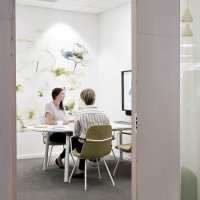February 3, 2022
Working from home fuels concerns for energy consumption
 Back in February 2020, consulting firm WSP UK published some interesting research that revealed those working from home during the summer saved around 400kg of carbon emissions, the equivalent of 5 percent of a typical British commuter’s annual carbon footprint. The catch was that it was just a seasonal benefit. If an average employee worked at home all year round, they would produce 2.5 tonnes of carbon per year – around 80 percent more than an office worker. This is because, during the winter, most heating systems in Britain heat the whole house, which produces far more carbon emissions than would be produced from the commute. More →
Back in February 2020, consulting firm WSP UK published some interesting research that revealed those working from home during the summer saved around 400kg of carbon emissions, the equivalent of 5 percent of a typical British commuter’s annual carbon footprint. The catch was that it was just a seasonal benefit. If an average employee worked at home all year round, they would produce 2.5 tonnes of carbon per year – around 80 percent more than an office worker. This is because, during the winter, most heating systems in Britain heat the whole house, which produces far more carbon emissions than would be produced from the commute. More →




































January 31, 2022
The great workplace conversation (still) needs to be held with a great deal more humility
by Mark Eltringham • Comment, Flexible working, Technology, Workplace design